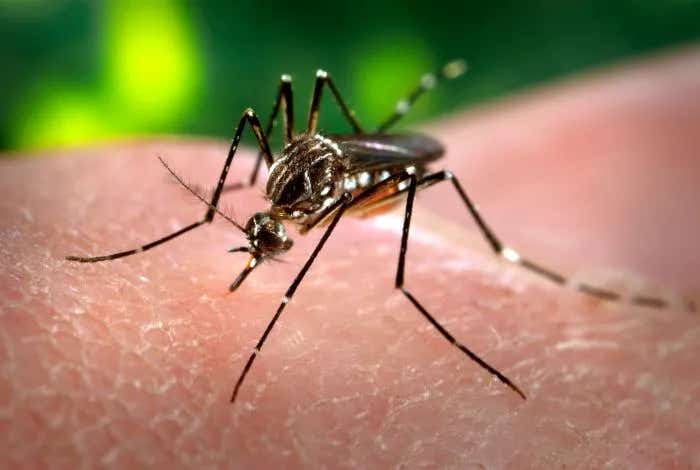Breakthrough drug could prevent deadly side effect of cancer treatment
JAK inhibitors may block a rare but deadly side effect of cancer immunotherapy without weakening its tumor-fighting power.

A UCLA-led study has found that JAK inhibitors could stop or reverse immune-related diabetes caused by cancer immunotherapy. (CREDIT: Getty Images)
Immune checkpoint inhibitors have changed the future of cancer care. These powerful treatments use the body’s own immune system to destroy tumors. But for some people, they come at a high cost. A rare and dangerous side effect called ICI-induced type 1 diabetes can strike without warning. This condition kills insulin-producing cells in the pancreas, forcing patients into lifelong insulin use and placing them at risk of severe complications like ketoacidosis.
Researchers have long known that CD8+ T cells, a type of immune cell, play a role in this damage. But a new study has revealed a different culprit hiding in plain sight. A group of scientists led by Dr. Melissa Lechner at UCLA uncovered how CD4+ T follicular helper (Tfh) cells might be just as responsible — and perhaps even more important. These cells release signaling molecules called IL-21 and interferon gamma (IFN-γ), both of which trigger the immune system to attack the body’s own tissues.
The findings, published in JCI Insight, offer a hopeful new strategy for patients. Existing drugs called JAK inhibitors, already approved to treat autoimmune conditions like arthritis and psoriasis, might be able to stop this diabetes before it starts — or even reverse it in some cases.
A Silent and Swift Complication
Immune-related adverse events, or IrAEs, happen in about two-thirds of patients receiving checkpoint inhibitors like pembrolizumab and nivolumab. These drugs remove natural brakes on the immune system, helping it find and destroy cancer cells. But they can also unleash immune attacks on healthy organs.
One of the most severe of these events is type 1 diabetes caused by checkpoint therapy, known as ICI-T1DM. It happens quickly, often without much warning. Within weeks, a patient’s pancreas can lose its ability to produce insulin. About 1–2% of patients on these therapies develop this condition, and nearly 90% need emergency care when it first appears. Once it begins, there is no cure. Patients must use insulin for life, even if their cancer is cured.
What makes ICI-T1DM especially concerning is how fast and permanent it is. In people being treated for curable cancers, this side effect leaves a lasting burden that may affect them for decades. Until now, no treatment existed to prevent or reverse the condition.
Related Stories
Pinpointing the Hidden Immune Driver
Dr. Lechner’s team wanted to find out exactly which immune cells were involved in this form of diabetes. While earlier studies had focused on CD8+ T cells, they took a broader look. In both mouse models and human samples, they found a previously overlooked player: CD4+ Tfh cells.
These helper cells were releasing IL-21 and IFN-γ, two signaling proteins that help activate other parts of the immune system. In cancer treatment, these proteins can be helpful in attacking tumors. But in ICI-T1DM, they appear to cause serious harm. They direct the immune system to destroy the body’s own pancreatic beta cells, which are responsible for producing insulin.
By identifying this process, the team also found a promising solution. Since both IL-21 and IFN-γ signal through the JAK/STAT pathway, the team reasoned that JAK inhibitors could block their action and halt the autoimmune response.
Turning Off the Attack
JAK inhibitors (JAKi) are drugs that stop the action of Janus kinases — enzymes that help send immune signals. These medications are already used to treat diseases like alopecia, rheumatoid arthritis, and psoriasis. They work by blocking multiple cytokine signals that can drive inflammation and autoimmunity.
In the new study, researchers gave JAK inhibitors to mice receiving immune checkpoint therapy. The results were striking. The treatment not only reduced the number of harmful Tfh cells in the pancreas but also protected against beta cell destruction. In some cases, it even restored normal blood sugar levels — suggesting a reversal of the disease in early stages.
Human samples supported the same idea. Patients with ICI-T1DM who received JAK inhibitors showed lower levels of Tfh cells and reduced markers of autoimmune attack. This is the first time scientists have shown that the IL-21 and IFN-γ pathway can be blocked using a safe, already-approved drug — without weakening the immune system’s ability to fight cancer.
“This is one of the first times we’ve found a way to intervene in these toxicities in a meaningful way,” said Lechner. “As more patients receive immunotherapy for early-stage and potentially curable cancers, preventing long-term autoimmune damage is becoming a critical part of survivorship care.”
A Path to Broader Protection
The findings could have implications beyond diabetes. The same team had earlier found that Tfh cells and IL-21 were also responsible for checkpoint therapy-induced thyroid damage. That condition, which affects up to 25% of patients, also results from rapid immune destruction of a vital gland.
This points to a broader role for Tfh cells in multiple autoimmune side effects of cancer immunotherapy. If these cells can be blocked early, it may be possible to prevent other forms of IrAE — including those that affect the heart, liver, or lungs.
JAK inhibitors have already shown promise in other checkpoint-related conditions. For example, in a recent trial, combining the JAK1/2 inhibitor ruxolitinib with a CTLA-4 agonist improved survival in patients with steroid-resistant checkpoint-related myocarditis, raising survival rates from 3.4% to 60%.
The next step is to bring this research into the clinic. Lechner’s team is preparing to launch the first human trial testing JAK inhibitors in cancer patients who develop immune checkpoint-related diabetes. If successful, it could become the first effective tool to prevent or reverse one of the most serious side effects of cancer immunotherapy.
“If we can make immunotherapy safer, especially for patients with pre-existing autoimmune disease who are often excluded from trials, we can extend the reach of these therapies,” Lechner said. “And we can start to offer real solutions to the thousands of patients living with permanent side effects.”
With checkpoint inhibitors becoming more common in cancer care, finding ways to reduce their risks without weakening their benefits is more important than ever. The discovery of Tfh cells’ role in ICI-T1DM and the potential of JAK inhibitors to stop them offers a powerful step forward in making these life-saving treatments safer for everyone.
Note: The article above provided above by The Brighter Side of News.
Like these kind of feel good stories? Get The Brighter Side of News' newsletter.



